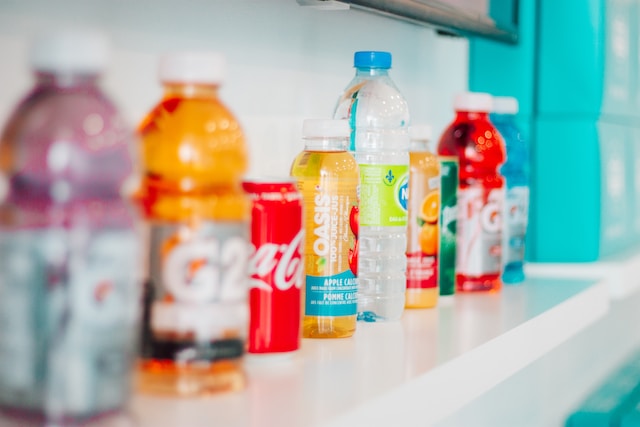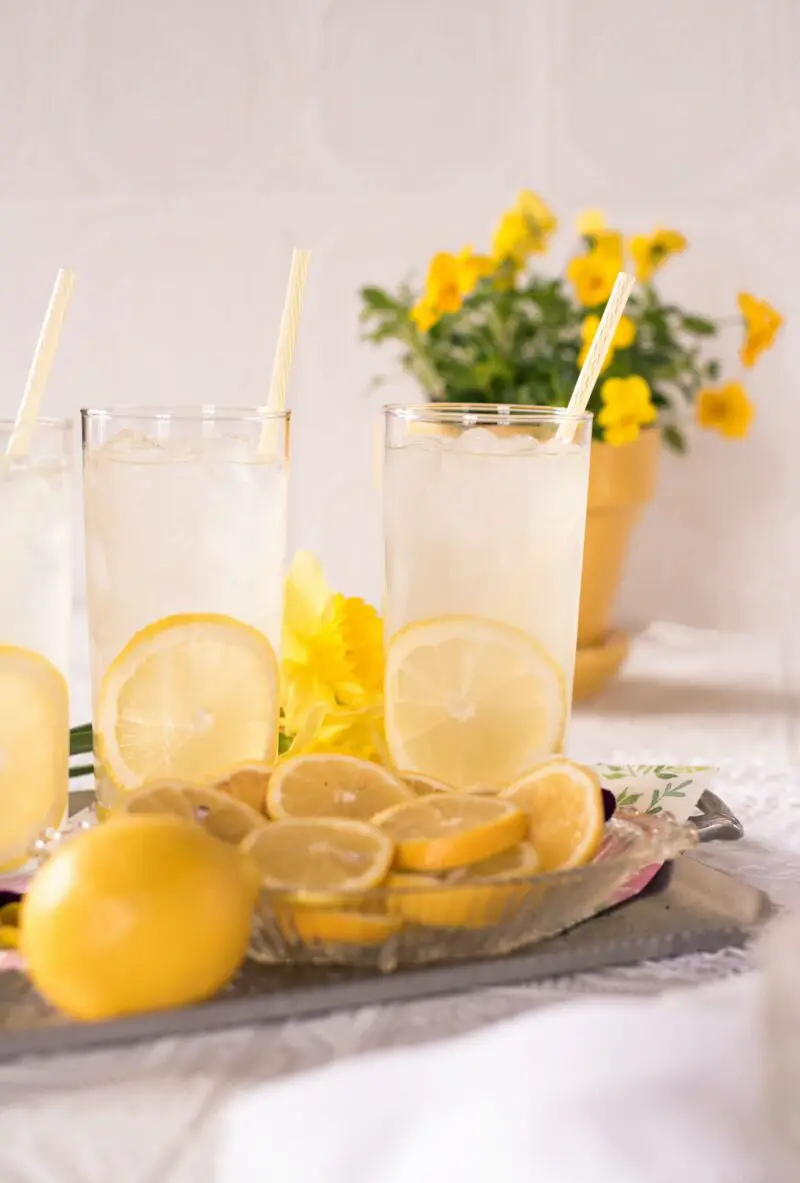Beverages are drinks that can be consumed for the purpose of hydration or pleasure, and can include non-alcoholic drinks such as water, soda, juice, and tea. Alcohol, on the other hand, is a psychoactive substance that can be found in some beverages, such as beer, wine, and liquor, and can cause intoxication and other effects on the body and mind.
What is Alcohol?
Alcohol is a chemical compound that is produced by the fermentation of grains, fruits, or other sources of sugar. It is a psychoactive substance that can have effects on the central nervous system when consumed, such as altering mood, behavior, and perception. Alcohol is commonly found in beverages like beer, wine, and spirits, and is used for recreational and social purposes. However, alcohol consumption can lead to a range of negative health effects and social problems.
What are beverages?
(Photo by Shayna Douglas on Unsplash )

Beverages refer to any type of drink, whether it’s alcoholic or non-alcoholic, that is consumed to quench thirst or for enjoyment. Common examples of non-alcoholic beverages include water, juice, tea, coffee, and soft drinks, while alcoholic beverages include beer, wine, spirits, and cocktails. Unlike alcohol, which specifically refers to drinks containing ethanol, beverages can refer to any type of liquid intended for human consumption.
The different types of alcohol
There are different types of alcohol, the three most common types of alcohol are Ethanol, Methanol, and Isopropanol.
Ethanol is the type of alcohol found in beer, wine, and spirits. It’s also the type of alcohol that’s used as a fuel source. Ethanol is a colourless, flammable liquid with a characteristic smell.
Methanol is a toxic alcohol that’s used as an industrial solvent. It’s also sometimes used as a fuel source. Methanol is a colourless liquid with a characteristic smell.
Isopropanol is the type of alcohol found in rubbing alcohol. It’s also used as an industrial solvent and cleaning agent. Isopropanol is a colourless, flammable liquid with a characteristic smell.
The different types of beverages
There are many types of beverages in the world, and each one has its own unique taste and purpose. While some beverages are designed to quench thirst or help with hydration, others are meant to be enjoyed for their flavour and aroma. Alcoholic beverages fall into their own category, as they contain ethanol, a type of alcohol that can have a profound effect on the body.
There are many types of beverages, including:
- Water – essential for hydration
- Tea – made from steeped leaves, and can be served hot or cold
- Coffee – made from roasted beans, and can be served hot or cold
- Soft drinks – carbonated beverages that can be sweetened or unsweetened
- Juice – made from squeezed fruits or vegetables, and can be fresh or from concentrate
- Milk – dairy-based beverage that can be consumed plain or used in cooking
- Sports drinks – designed to hydrate and replenish electrolytes during physical activity
- Energy drinks – designed to provide a boost of energy, usually containing caffeine and other stimulants
There are many other types of beverages as well, including herbal teas, smoothies, milkshakes, and more.
The similarities and differences between alcohol and beverages
When it comes to alcohol, there are many different types of drinks that fall under this category. The most popular alcoholic beverages include beer, wine, and liquor. However, there are also many non-alcoholic options that are considered beverages, such as soda, juice, and water.
Alcohol is always made through a fermentation process, while other beverages may not be. . while all alcoholic beverages can technically be considered “liquor,” not all liquors are alcoholic – some are simply extracts or flavorings.
Alcoholic beverages contain ethanol, which is a type of alcohol. This substance can have intoxicating effects on the drinker, depending on how much is consumed. Non-alcoholic beverages, on the other hand, do not contain ethanol and are therefore not considered intoxicating.
Another key difference is that alcoholic drinks tend to have more calories than non-alcoholic ones. This is because ethanol contains seven calories per gram, while other types of sugars found in Beverages only have four calories per gram. This means that drinking an alcoholic beverage can cause you to consume more calories overall, which can lead to weight gain.
Alcoholic drinks can have a negative impact on your health if they are consumed in excess. This is because ethanol is metabolized by your liver and can cause damage over time. Drinking too much alcohol can also lead to problems with your mental
Alcoholic beverages are often subject to different laws and regulations than other types of drinks.
Negative effects of Alcohol
(Image by Clker-Free-Vector-Images from Pixabay )

Alcohol consumption can have numerous negative effects on a person’s physical, mental, and emotional well-being. Some of the most common negative effects of alcohol include:
- Damage to the liver: Alcohol is primarily processed by the liver, and excessive alcohol consumption can lead to liver damage and even liver failure.
- Increased risk of cancer: Long-term alcohol consumption has been linked to an increased risk of several types of cancer, including breast cancer, liver cancer, and colon cancer.
- Impaired judgment and coordination: Alcohol can impair a person’s ability to make sound decisions and can also affect their motor skills, resulting in accidents and injuries.
- Addiction: Alcohol is an addictive substance, and long-term alcohol abuse can lead to alcoholism, a chronic disease that requires treatment.
- Depression and anxiety: Alcohol consumption can worsen symptoms of depression and anxiety and can lead to the development of these conditions in some individuals.
- Relationship problems: Excessive alcohol consumption can lead to strained relationships with family members, friends, and romantic partners.
- Legal problems: Alcohol-related incidents, such as DUIs or public intoxication, can result in legal consequences such as fines, loss of driver’s license, and even jail time.
- Physical health problems: Long-term alcohol consumption can also lead to a range of physical health problems, including high blood pressure, heart disease, and digestive issues.
It’s important to consume alcohol in moderation and to seek help if you or a loved one is struggling with alcohol addiction.
Featured Image By – Charity Beth Long on Unsplash









